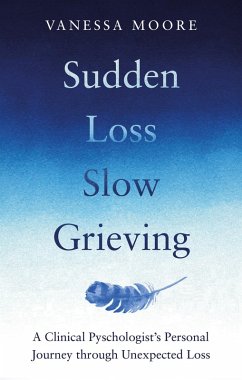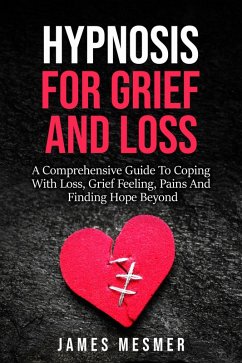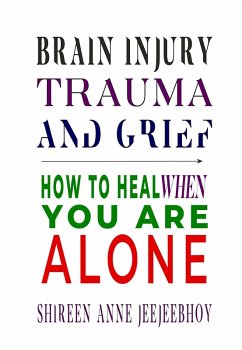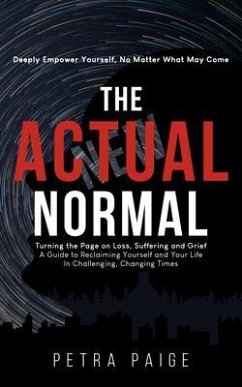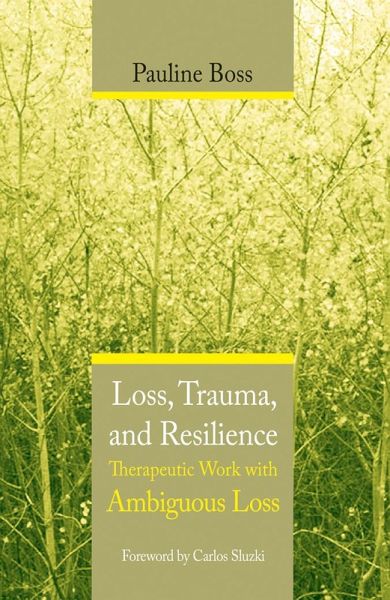
Loss, Trauma, and Resilience (eBook, ePUB)
Therapeutic Work With Ambiguous Loss

PAYBACK Punkte
9 °P sammeln!
All losses are touched with ambiguity. Yet those who suffer losses without finality bear a particular burden.Pauline Boss, the principal theorist of the concept of ambiguous loss, guides clinicians in the task of building resilience in clients who face the trauma of loss without resolution. Boss describes a concrete therapeutic approach that is at once directive and open to the complex contexts in which people find meaning and discover hope in the face of ambiguous losses. In Part I readers are introduced to the concept of ambiguous loss and shown how such losses relate to concepts of the fami...
All losses are touched with ambiguity. Yet those who suffer losses without finality bear a particular burden.
Pauline Boss, the principal theorist of the concept of ambiguous loss, guides clinicians in the task of building resilience in clients who face the trauma of loss without resolution. Boss describes a concrete therapeutic approach that is at once directive and open to the complex contexts in which people find meaning and discover hope in the face of ambiguous losses. In Part I readers are introduced to the concept of ambiguous loss and shown how such losses relate to concepts of the family, definitions of trauma, and capacities for resilience. In Part II Boss leads readers through the various aspects of and target points for working with those suffering ambiguous loss. From meaning to mastery, identity to ambivalence, attachment to hopethese chapters cover key states of mind for those undergoing ambiguous loss. The Epilogue addresses the therapist directly and his or her own ambiguous losses. Closing the circle of the therapeutic process, Boss shows therapists how fundamental their own experiences of loss are to their own clinical work.
In Loss, Trauma, and Resilience, Boss provides the therapeutic insight and wisdom that aids mental health professionals in not "going for closure," but rather building strength and acceptance of ambiguity. What readers will find is a concrete therapeutic approach that is at once directive and open to the complex contexts in which people find meaning and discover hope in the face of ambiguous losses.
Pauline Boss, the principal theorist of the concept of ambiguous loss, guides clinicians in the task of building resilience in clients who face the trauma of loss without resolution. Boss describes a concrete therapeutic approach that is at once directive and open to the complex contexts in which people find meaning and discover hope in the face of ambiguous losses. In Part I readers are introduced to the concept of ambiguous loss and shown how such losses relate to concepts of the family, definitions of trauma, and capacities for resilience. In Part II Boss leads readers through the various aspects of and target points for working with those suffering ambiguous loss. From meaning to mastery, identity to ambivalence, attachment to hopethese chapters cover key states of mind for those undergoing ambiguous loss. The Epilogue addresses the therapist directly and his or her own ambiguous losses. Closing the circle of the therapeutic process, Boss shows therapists how fundamental their own experiences of loss are to their own clinical work.
In Loss, Trauma, and Resilience, Boss provides the therapeutic insight and wisdom that aids mental health professionals in not "going for closure," but rather building strength and acceptance of ambiguity. What readers will find is a concrete therapeutic approach that is at once directive and open to the complex contexts in which people find meaning and discover hope in the face of ambiguous losses.
Dieser Download kann aus rechtlichen Gründen nur mit Rechnungsadresse in A, D ausgeliefert werden.






